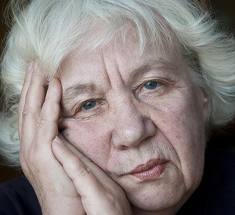 How many times have we all seen the commercial with the plaintive actor on the floor crying, “Help, I’ve _____ and I can’t get up.” No one would ignore a plea for help from an older person who has fallen and cannot get up. But a lot of caregivers may be ignoring a similar plea with all of the health threat that a fall can represent. It is just that this fall is in slow motion. And it goes like this: “Help, I am so fatigued that I don’t feel like getting up.”
How many times have we all seen the commercial with the plaintive actor on the floor crying, “Help, I’ve _____ and I can’t get up.” No one would ignore a plea for help from an older person who has fallen and cannot get up. But a lot of caregivers may be ignoring a similar plea with all of the health threat that a fall can represent. It is just that this fall is in slow motion. And it goes like this: “Help, I am so fatigued that I don’t feel like getting up.”
Tired often does not get enough attention in medical circles, but it is a common symptom reported by people age 65 and older. We tend to discount fatigue, because we cannot accept that a person who has retired and now enjoys six Saturdays and a Sunday every week could not be well-rested. And if you are a caregiver to an older loved one, you may find it a bit challenging to muster the sympathy for your older loved one when you already are stretched across your responsibilities for your children, your partner, your job and… Yet, we should all pay attention to the subjective complaints of fatigue in our older loved ones, because tired can be a symptom of more serious medical conditions and because tired can lead to serious physical decompensation.
Let’s start with the other medical conditions for which fatigue can be a warning sign. Perhaps the most common clinical condition that presents with fatigue is depression, itself one of the most common comorbidities of aging. Depression often can arise from the hallmark aspects of getting older – loss, diminished physical capacity and social isolation to name a few. Chronic fatigue also can be a symptom of sleep apnea, restless leg syndrome, fibromyalgia, chronic obstructive pulmonary disease and any number of heart conditions. Poor quality sleep may also be indicative of musculoskeletal conditions or pain. If your older loved one is consistently tired, it may be time to accompany them on a visit to their physician for an assessment and a conversation.
Sleepiness can also be just one more step along the slippery slope to frailty. Fatigue can be a strong disincentive for your older loved one to be as active physically as they once may have been. Fatigue also puts a damper on appetite which in turn reduces the quality of the fuel the body consumes to run the body’s engine which leads to increased tiredness and low motivation for physical activity. And all of this translates into decreased mobility and frailty. Medical professionals refer to frailty as a “pre-disability.”
So, if the tiredness has gone on for an extended time, begin to look for signs of genuine frailty. No surprise, the signs include exhaustion (“hyper fatigue?”). Frailty also is predicted by weakness in grip and slower walking pace. And by weakness, we mean a quantum reduction in ability to grasp, and by slower we are talking a fraction of former strides. All of these point to diminished physical activity. Think of frailty as one step away from a permanent reliance upon a walker or wheelchair.
The next time you are speaking with an older individual who reports being consistently tired, it may be time to wake up and take stock of their overall health.
Charlotte Bishop is a Geriatric Care Manager and founder of Creative Care Management, certified professionals who are geriatric advocates, resources, counselors and friends to older adults and their families in metropolitan Chicago. Please email your questions to info@cr eativecaremanagement.com.




